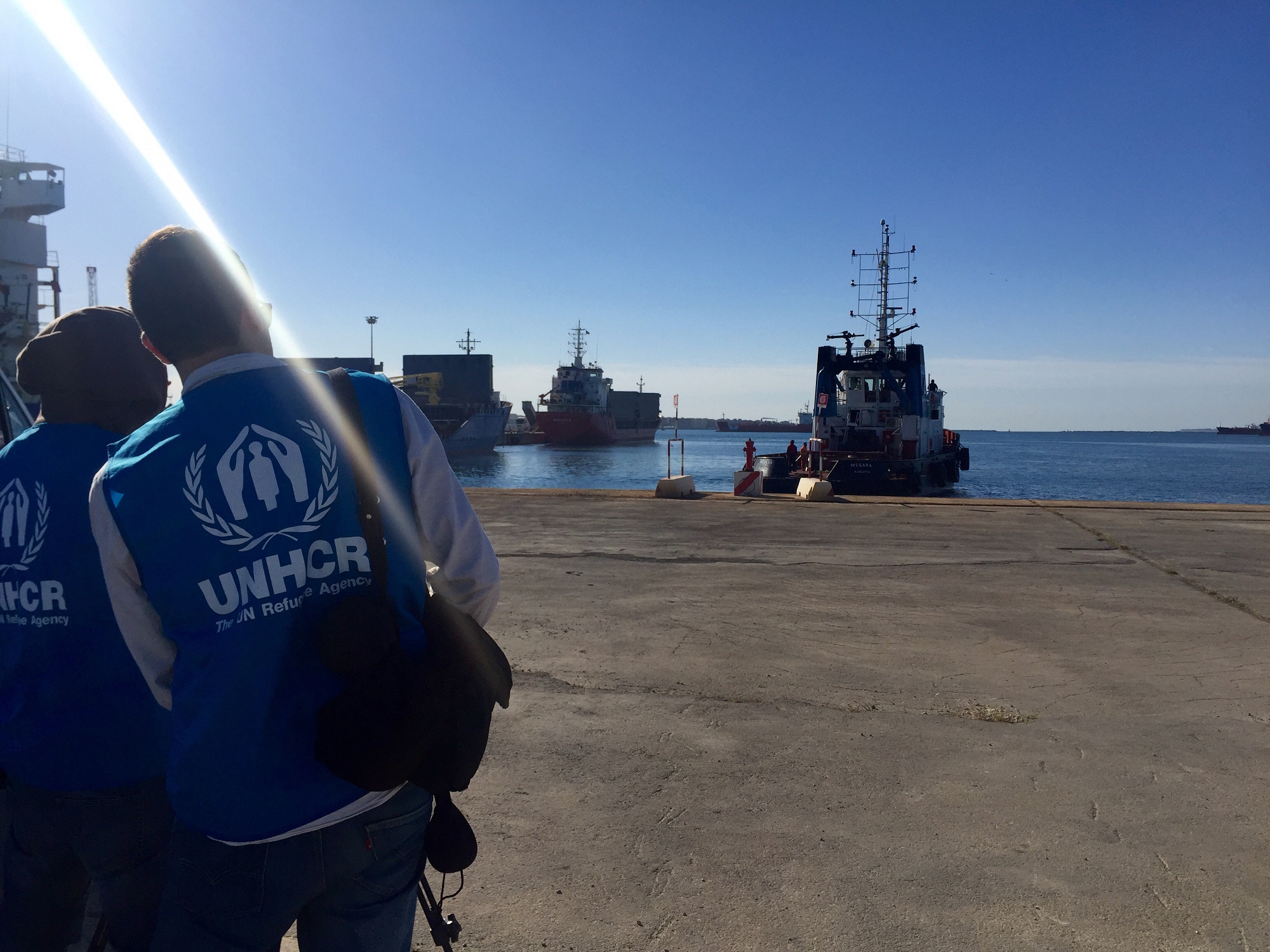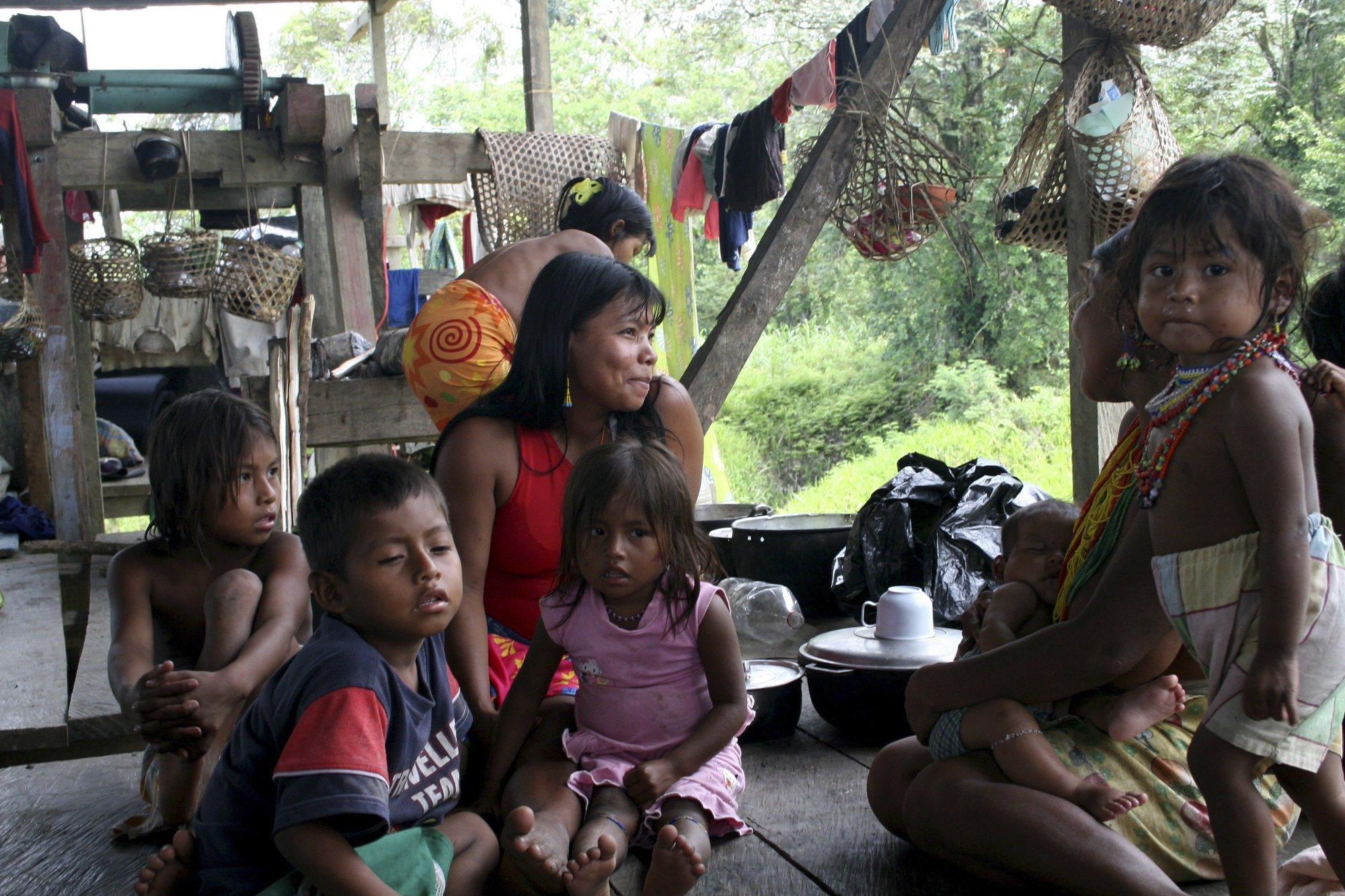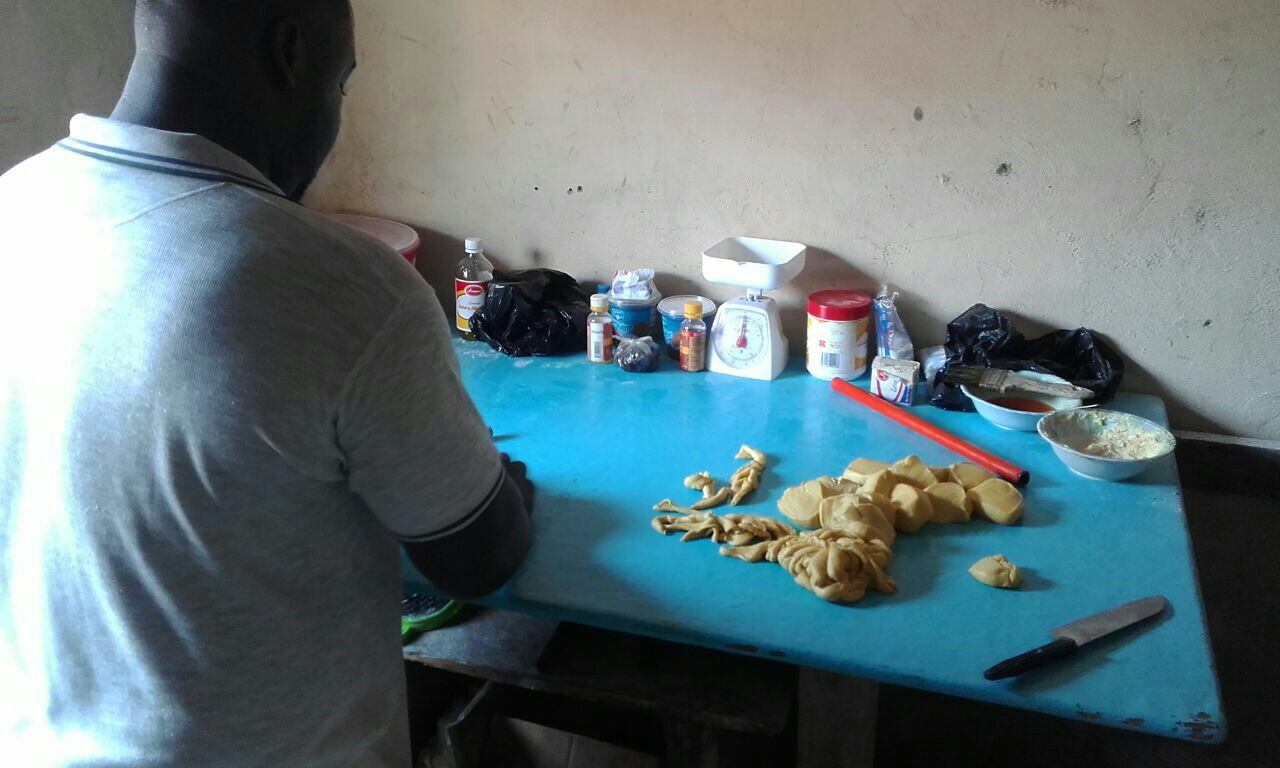Acting out their trauma, refugees bond with Ugandan hosts
Acting out their trauma, refugees bond with Ugandan hosts

KAMPALA, Uganda, Feb 18 (UNHCR) - Men in black masks and combat gear appear, roughly round people up into circles and force them to lie face down in silence. The air is torn by screams and the rasp of gunfire.
It is a harrowing experience lived by refugees from conflict-ravaged Burundi, Democratic Republic of the Congo and South Sudan who have sought safety in Uganda. Tonight, some act out the trauma on the stage of the country's National Theatre before an audience of hundreds of people.
The title of the show is "Tunaweza," translated simply as "We Can." It presents the arc of refugees' journey from the harrowing violence that drove them from their homes, through to their lives remade in exile in Uganda, which currently hosts around half-a-million refugees and asylum-seekers from strife-torn countries in eastern Africa and the Great Lakes region.
The three-hour show - which also includes Ugandan cast members - is the brainchild of local nonprofit InterAid Uganda and drama teacher Lilian Mbabazi. Supported by UNHCR, it aims to encourage audiences to get to know refugees, highlight their resilience and dispel myths about them as passive receivers of aid or threats to local jobs.
"Most people only hear about refugees in the news. This project gives them the chance to tell the truth about their lives and to showcase their abilities," said Mbabazi, a lecturer in drama at Makerere University. "My mother is Rwandan, so when I look at these kids, I think of what happened in Rwanda and I see them as my brothers and sisters."
Uganda stands out for its innovative approach to hosting refugees, who are integrated in villages, side by side with local Ugandan communities, and encouraged to be self-reliant. They are also free to move around the country, to work and start their own businesses, and have access to the same public services as their Ugandan hosts.
Once Mbabazi met with the group, she wanted to give them as big a platform as possible. She contacted the National Theatre, who told her the only slot they could offer her was in 19 days, leaving little time to come up with a title, concept and script. The fact that they made it in time was made all the more remarkable by the collaborative approach they decided to adopt.
The director and cast brainstormed their experiences, coming up with a play that depicts everything from their flight from danger to the challenges of making friends in their new communities. The final work uses drama, dance and song to touch on themes of fragility, transience, belonging and hope, while focusing on two main concepts: "We" and "ability."
"We wanted to talk about 'We' because it shows togetherness," said Beliyse, 18, who arrived in Uganda last year after the outbreak of violence in Burundi. "It shows togetherness not only amongst refugees but also together with Ugandans. We also wanted to show how refugees have talents. We don't often get to show them but when people allow us we can really demonstrate what we can do."
The resulting play takes the audience on a vivid, authentic and emotional journey from danger to a more stable life in Uganda - where the ups and downs of integration and starting over are sometimes mined for comic effect.
"We didn't only want to focus on the bad," said Oscar, 22, from Congo. "It's about how we left our countries and what happened to us, but it's also about the happier stuff too. Our new lives, our friends, our love lives … or for some, the failures of our love lives!"
The play, which both moves audience members to tears and prompts wails of welcome laughter, is proving a hit with theatregoers in Kampala. As the curtain fell on their first performance, the audience rose to their feet and gave the cast a standing ovation.
"It was superb," said Sarah, a Ugandan who found out about the show by chance when she came across a promotional poster. "I think it will help refugees and Ugandans here to come closer. Some people are often mistaken about refugees but if they see the amazing show these kids have been able to put together, even though what they've been through, they will be touched."
The group hopes to receive similar reactions in the weeks and months ahead as they take their show across Uganda, acting out their journey alongside Ugandan players.
"This group is a perfect example of the benefits that can be gained from allowing refugees to flourish within local communities," said UNHCR Representative to Uganda Neimah Warsame. "When refugees and their hosts live together, work together and play together, they thrive together. This serves as an example for other countries around the world for successful ways to bring about social cohesion."
By Charlie Yaxley in Kampala, Uganda








